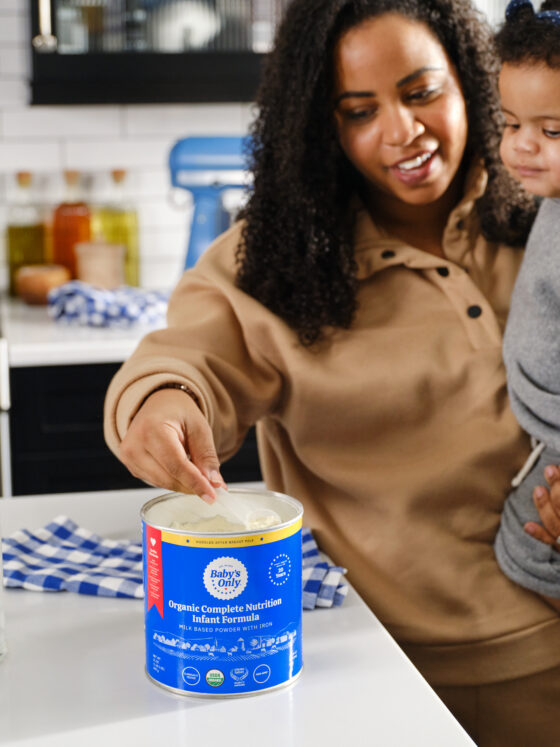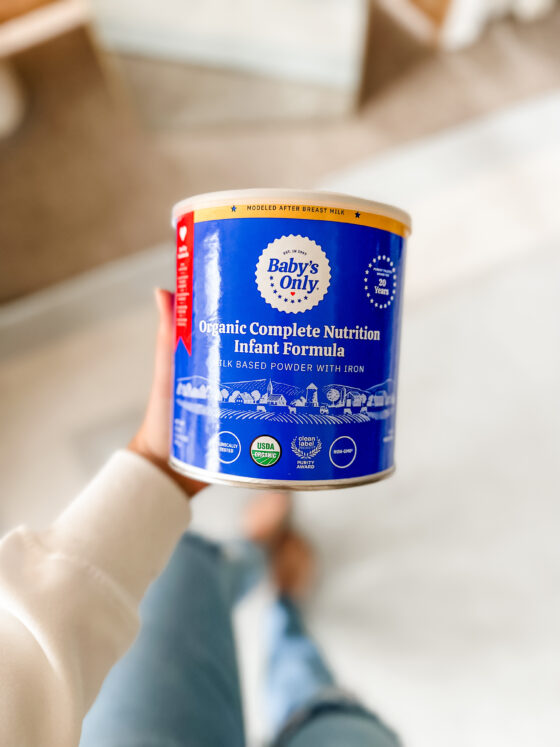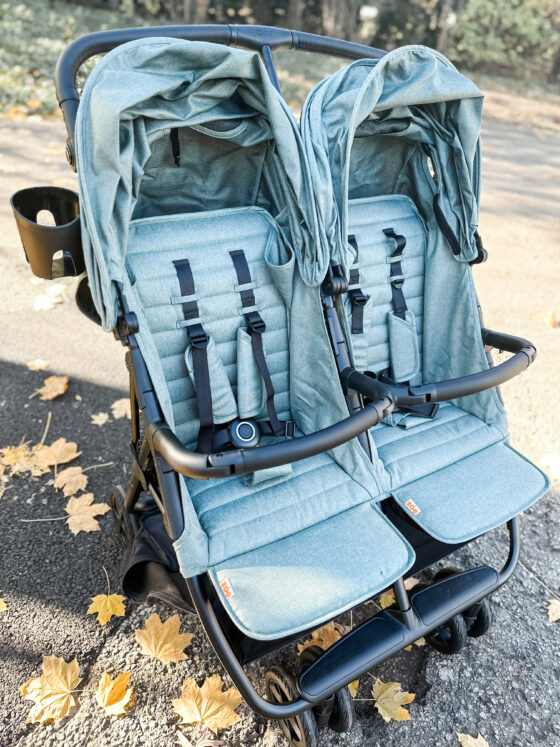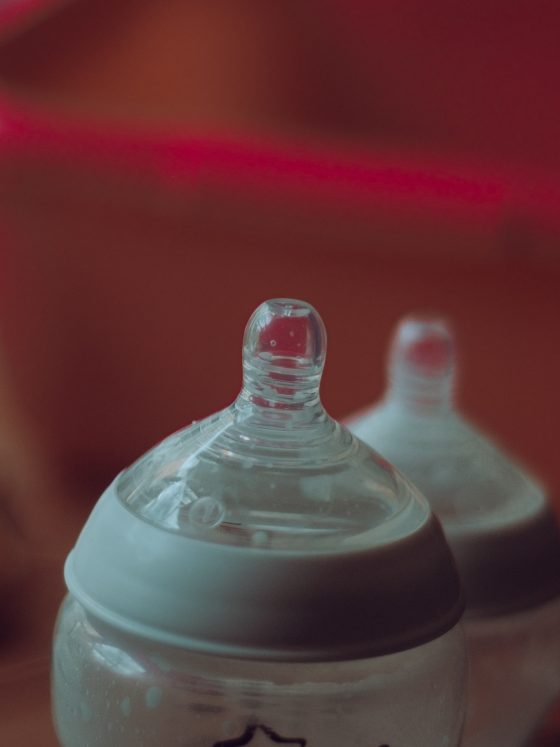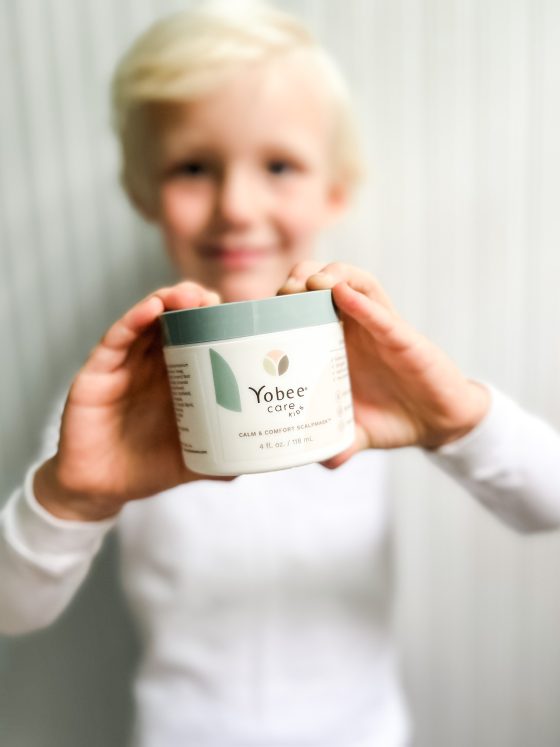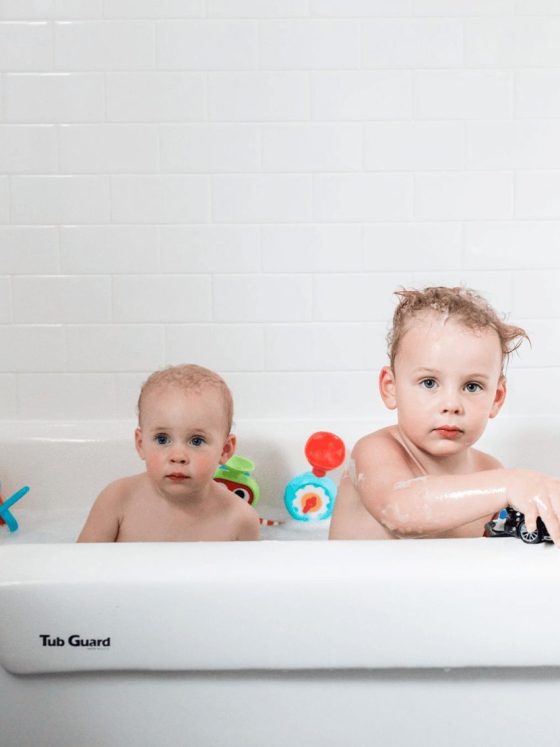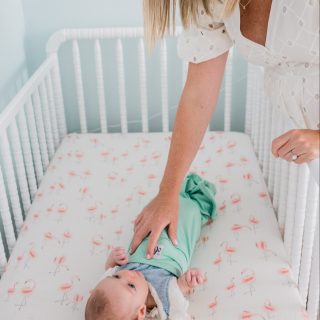A perinatal therapist’s experience with postpartum depression

As an expert on perinatal mood disorders such as postpartum depression, I knew that I was not immune to it. However, I didn’t expect to experience it as tremendously as I did. Read on to hear about my story.
My risk factors for developing postpartum depression
Looking back now, I realize how many risk factors that I had for developing a perinatal disorder following the birth of my daughter Maya.
I have a personal history of anxiety and depression and her pregnancy was unplanned immediately following a miscarriage.
I discovered that I was pregnant with Maya about three weeks after I had miscarried. I really didn’t know what to feel. I felt numb. I had a history of hyperemesis gravidarum (HG, which you can read more about here).
The anxiety immediately settled in as I had flashbacks to the deep depression that I experienced with my last pregnancy due to hyperemesis. I actually had to quit working as a therapist because I felt it was entirely unethical for me to be seeing patients when I was so depressed myself.
My relationship with pregnancy was complicated – complicated in the sense that I hated being pregnant. This would also be my second loss.
My mental state while I was pregnant with my son was the worst that it had ever been in my life. I was not sure if I would ever get pregnant again.
However, I had that “movie” moment when I delivered my son. At that moment, all of my fears of my ability to bond with a baby that I felt resentful towards in the womb vanished.

Now don’t get me wrong, I struggled with crippling anxiety after I delivered my first. However, my overall feeling was happiness. This is the main thing to remember when we’re looking for a diagnosis of a perinatal mood disorder, what is the delivering parent’s overall feeling?
My pregnancy with Maya was complicated. After I miscarried, I began a new job at a private practice. I immediately felt a surge of anxiety about telling my new boss that the therapist he just hired would need to be taking leave.
I was just as sick as I was the first time around finding myself in and out of OB triage for fluids because of the HG. This pregnancy was also watched more closely due to the recent miscarriage.
To complicate things further, I have a negative blood type and developed a subchorionic hemorrhage/hematoma and bled throughout the majority of my pregnancy on and off. Each time that happened, I needed something called a RhoGAM shot, which is an immunity support injection for people with negative blood types.
It helps prevent the body from developing Rh antibodies. Of course, seeing blood was quite the trigger as well.
At my twenty week ultrasound appointment, we discovered that Maya has something called a pelvic kidney. This basically means her kidney never ascended. She was also showing signs of being IUGR. I had a history of this with Milo but it was completely missed until I delivered him.
Covid 19 emerged right around that time. Each time I had to go in for fluids from dehydration, I would be admitted the covid labor and delivery floor because vomiting is a sign of Covid.
I would lay there alone for hours on end, in isolation, acutely aware that were mothers on the other side of those walls delivering without any family support because they were Covid positive.
I had to prepare to deliver Maya at anytime past 33 weeks due severe IUGR. I was going on for appointments about twice a week, with ultrasounds every two weeks and non stress tests every few days. I developed severe anxiety surrounding this and began to disassociate.
 At 37 weeks, my OB decided it was time to induce me as Maya was showing increased signs of restricted growth and other complications. My husband was allowed at my induction. I cried the first few hours, I felt so alone and missed having other loved ones by my side.
At 37 weeks, my OB decided it was time to induce me as Maya was showing increased signs of restricted growth and other complications. My husband was allowed at my induction. I cried the first few hours, I felt so alone and missed having other loved ones by my side.
I had complications with my epidural (how ironic as my husband is an anesthesiologist) and began to feel like I was going into shock from the pain.
I truly did not think I could do it anymore as a resident ran in the room. I screamed at everyone to get out because I needed to vomit and just wanted some privacy. He explained that they were seeing irregular heart rhythm for Maya and needed to check out was going on.
I was full on sitting up at this point in an attempt to assist with some of the distress that Maya was in. When they went to check me, Maya was already half way out. I had no idea. I asked what I should do as she came essentially flying out. A petrified intern screamed, “What should I do?” as I yelled, “CATCH HER!”
Naturally, I yelled for my husband to take photos of this and I was truly in shock. There was no pushing this time. No burst of emotion. No tears. Just shock. I remember looking at her so confused – thinking to myself, “What are you doing here? You were supposed to let me birth you. I was supposed to see the primal magic of what my body could do!”
I handed Maya to Rami and immediately passed out. I couldn’t keep my eyes awake. It was 5 in the morning and I had been up almost 24 hours.
Maya was born in July of 2020. The heart of the pandemic. Our home was quiet. There were very few visitors. A medical emergency happened for father-in-law two days after she was born. Family help was out of the question.
I foolishly took a two-week maternity leave with the plan of returning slowly until six weeks, at which point I went back to my normal schedule. I could not take longer due to being an unpaid maternity leave, which is not uncommon in my field at all. My boss had no expectations of when I would return, I set my own return date.
Maya cried day and night. I looked at her and I felt like I did not know who she was or what she wanted. I loved her and I also resented her. I wondered what type of colossal mistake I had made. Clearly I could not do this.
The sleep deprivation was unbearable. She woke every 30 mins-1 hour until she was five months old. I came down with Covid 19 when she was four months old. It was truly torture. The week before we had discovered that Maya had a dairy soy protein intolerance and I had to eliminate all traces of dairy and soy from my diet.

My symptoms of postpartum depression
Mentally I was struggling immensely. I cried daily. Very few people knew who much I was struggling aside from my husband and my mother.
My mother helped out with the kids as much as she could be she works full time. My husband, he simply wasn’t around because of his schedule. Residency is not made for children, I’ll tell you that much.
So I worked. And I pumped. And I breastfed. And I cried. I share a little more in my IG reel here.
I was angry at everyone and no one. I finally told some friends, who of course had no idea because I was doing what many do and hiding how I was really feeling. I told my colleagues at a staff meeting. I cried and they cried with me. And it was so freeing. I felt love and acceptance and was reminded that I am a human first.
Every day I supported mothers through their own journey with postpartum depression. And I did a damn good job at it. Therapists can be pretty good at avoiding their own problems.
I juggled three jobs, I took the kids to all of their activities, I posted adorable photos of them. I did all of the “things.” From the outside looking in, I was super mom. I didn’t need any help, I had it all. This could not have been any further from the truth.
I didn’t start therapy until I was seven months postpartum. I wasn’t ready. I never went in for my six week postpartum visit with my OB. I could not do it.
Children were not allowed because of Covid, it was too overwhelming to arrange childcare, and I couldn’t look my OB in the eye and tell her how I was doing. Mainly because I knew I would likely lie. Like many do.

I couldn’t step back in that office. The same office where I miscarried and then went on to carry a very stressful pregnancy. I’m sixteen months postpartum now. About three months ago I noticed how much better I was feeling.
I only knew because I couldn’t remember the last time that I had felt rage pouring out of me. I couldn’t remember the last time I cried. And that was so freeing.
I don’t feel resentment towards my OB. I am resentful of the system. A system that see’s that a woman has so many risk factors for developing a perinatal mood disorder and does not administer any type of outreach when she has seemingly vanished into think air following her delivery.
I’ll tell you something, it’s not common for a therapist to share such intimate details about her own personal life. But if it helps normalize this for another mother, then I’ll shout it from the freaking rooftop. My work is ongoing. But today I can look myself in the mirror and know that I am exactly what my children need.
My name is Deema, I am considered an expert in perinatal mood disorders with the most specialized training available to date and I survived postpartum depression.
 Additional help: If you or someone you know is struggling with a perinatal mood disorder please reach out for help. Deema offers video chat consultations.
Additional help: If you or someone you know is struggling with a perinatal mood disorder please reach out for help. Deema offers video chat consultations.
Additional resources:
- Postpartum care plan e-guide – Deema created this to help cover all of the basic necessities and logistics that you’ll need in order to move through the postpartum period.
- FREE postpartum depression e-guide – Learn the signs and symptoms of postpartum depression and anxiety, along with the next steps for getting help
- A therapists guide to postpartum depression resources
- My postpartum depression story
- Renée’s postpartum anxiety story
- 13 things no one told you about postpartum
- My journey to formula
**This post is educational and not meant to take the place of your provider.



